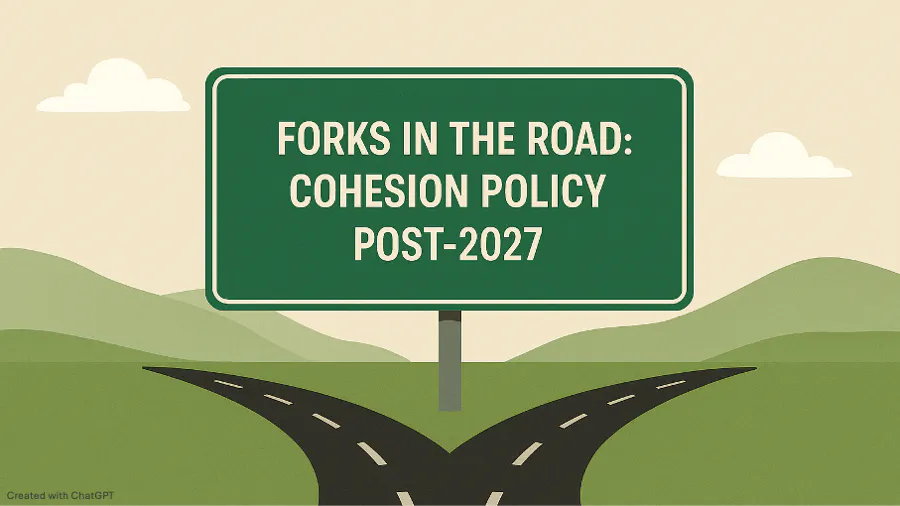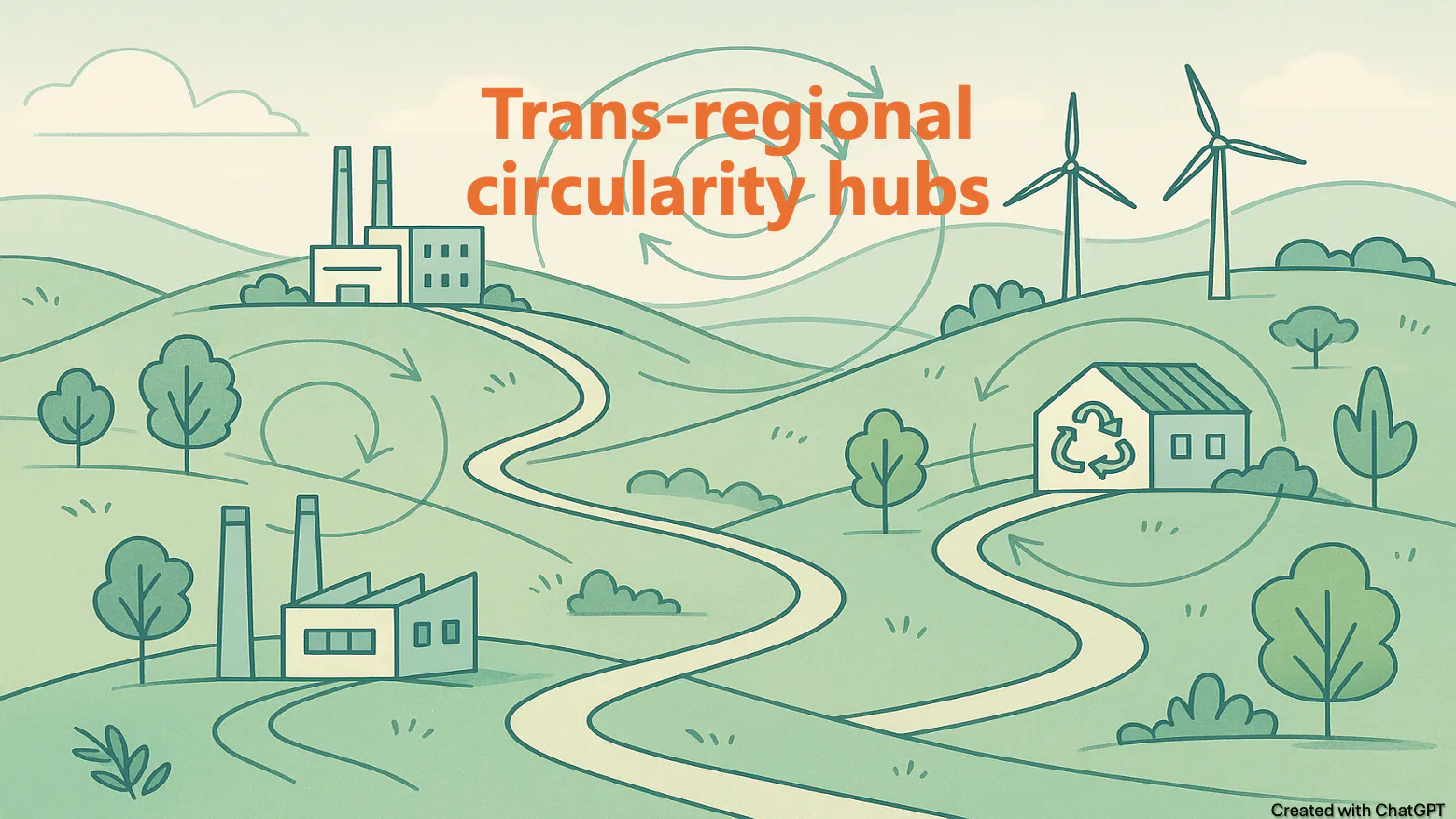Newsletter #47
territorial future thoughts by spatialforesight
In May, we published three blog posts exploring different aspects of the future of territories. One post continues our reflections on Cohesion Policy after 2027. The other two posts focus on upcoming EU policy developments concerning the Union of Skills and Transnational Circularity Hubs.
Forks in the road to cohesion policy post-2027. As the EU prepares for the next Multiannual Financial Framework (MFF), the future of Cohesion Policy is uncertain. Several potential bifurcation points are emerging, each capable of nudging the policy towards either incremental evolution or radical transformation beyond 2027. (Read (S'ouvre dans une nouvelle fenêtre))
 (S'ouvre dans une nouvelle fenêtre)
(S'ouvre dans une nouvelle fenêtre)Europe, a union of skills: Tackling Europe's talent trap. A skills shortage is one of the EU's most pressing structural challenges. How can Europe ensure that everyone and every place has a future in the green and digital age? A Union of Skills could transform the prospects of individuals and regions seeking to escape the talent trap. (Read (S'ouvre dans une nouvelle fenêtre))
 (S'ouvre dans une nouvelle fenêtre)
(S'ouvre dans une nouvelle fenêtre)Connecting the dots for a greener future: Trans-regional circularity hubs. The concept of trans-regional circularity is emerging. These hubs are expected to unlock the potential of circular value chains on a large scale by connecting industrial, urban, and policy actors across regional and national borders. But what exactly are these hubs, and how do they fit into the evolving EU policy landscape? (Read (S'ouvre dans une nouvelle fenêtre))
 (S'ouvre dans une nouvelle fenêtre)
(S'ouvre dans une nouvelle fenêtre)In the pipeline
We will continue to update the blog with our thoughts on the future of Europe, its spaces, places and people.


